Space is interesting, mysterious, and at the same time scary as well. Is it actually scary, though? After reading these 25 scary facts about Space, you as well will start to believe it. Right now, we might know a lot of things about the universe.
However, we have to admit that we are yet to know everything there is about the massive thing called space. But in this post, we have jotted down a list of numerous facts about the space we think you will love.
So, do you want to know more? Then let’s delve right in…
25 Wow facts about Space you will love to learn
#1 Galactic Cannibalism
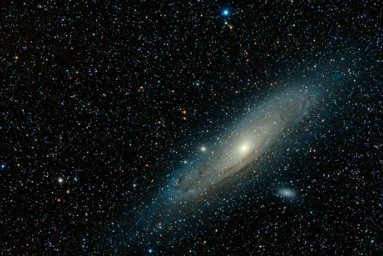
Galactic Cannibalism? Yes, you have heard it right. There are many instances in the universe that a galaxy can collide with another one or multiple galaxies. Technically, you could say a galaxy eats another one.
This phenomenon is called ‘Galactic Cannibalism’. Reportedly, the larger galaxies collide with smaller ones once in 8 to 9 billion years. And, many smaller galaxies also collide with larger ones frequently.
#2 Solar Superstorms
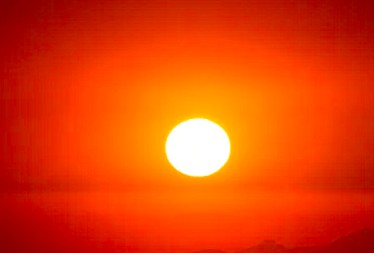
The sun is burning all the time. However, there are times when the Sun might get a bit bright. And this sudden burst of brightness is known as ‘Solar Flare’. But most of the time a solar flare will be accompanied by another phenomenon known as ‘Coronal Mass Ejection’. They can go in any direction.
Matter of fact, there are times when the particles and radio-waves from the solar flare might come towards the Earth as well. In those cases, we will face various issues on Earth. Interestingly, such a strong solar storm almost hit the Earth on 23rd July 2012. This was a potentially damaging solar flare. Lucky for us, we have barely escaped from it.
#3 We are Moving Too Fast through Space

You might be sitting still somewhere reading this post. But at the same time, our planet Earth is revolving around the sun at a speed of about 67 thousand miles per hour or 107 thousand kilometers per hour.
Similarly, the sun is also moving around the center of the Milky Way galaxy at a speed of about 828 thousand kilometers per hour or 230 km per second. Whereas our galaxy ‘Milky Way’ is moving through space at a speed of about 1.4 million miles per hour 2.2 million kilometers per hour. That is unbelievably fast!
#4 Even if There are Aliens, We might not Find Them
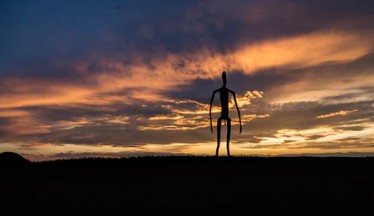
There are trillions and trillions of stars in the universe. And, most of those have their own planets. That implies that there could be extraterrestrial lives anywhere in the universe. However, we haven’t yet found them or they might have not yet found us.
Now, why is that? According to a famous theory, we might not even find any aliens as the galaxies are moving away from one another. The farther the galaxy, the faster it moves. That means even if there are aliens in any other galaxies, we might not even reach them or vice versa.
#5 Rogue Planets
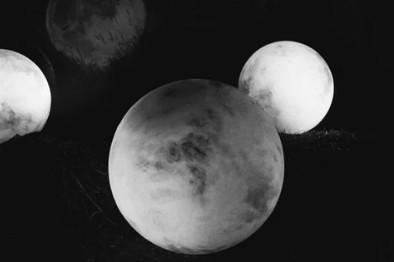
There are a lot of planets that have escaped the gravity of their parent stars. Some of these rogue planets can be 3 times the size of our planet Earth. Whereas, some can be 12 times the size of Jupiter.
So, there are massive in size. Now, these rogue planets are moving through the space about 30 million miles per hour. And, there might be a time, any of these rogue planets can hit the Earth.
#6 Space Doesn’t Smell Great
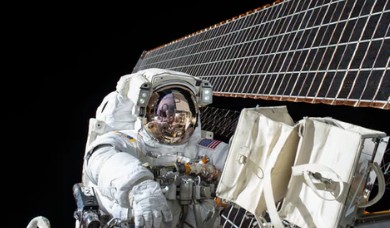
There is no sound in space. But turns out, it has a peculiar smell. But what is this odor feel like? Many astronauts described the space odor. Some said space smells like hot metal. Whereas some of them said that it smells like seared steak, welding fumes, or gun powder. Interesting, isn’t it?
#7 The Night Sky will Get Dark Forever
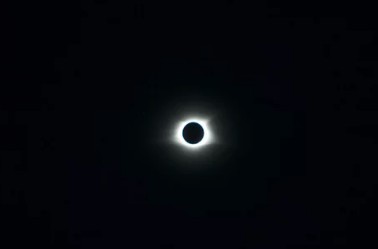
Go outside at night and most of the time, you will find a sky full of stars. However, this might not be the case always. According to various scientists, the night sky might go totally black at one point in the future. However, lucky for you, this might not happen in trillions of years from now.
#8 A Rogue Black Hole
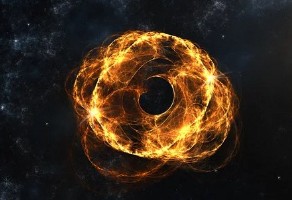
Like the rogue planets, there are rogue black holes as well. In fact, astronomers have reported of such a black hole, that is actually present in our galaxy. This one is about the size of planet Jupiter.
And it is speeding through space at a speed of about 3 million miles per hour or 4.8 kilometers per hour. In the process, this supermassive black hole is devouring anything that is crossing its path.
#9 Crying in Space
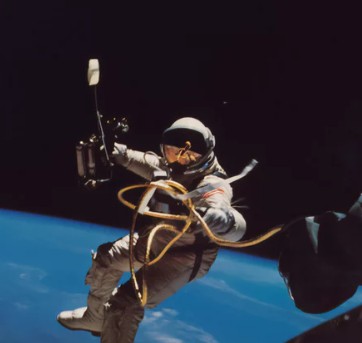
Wherever you go, you can cry your hearts out. However, when you are in space, this is different. We are not saying that you can’t cry in space. But we are trying to mean that you can’t cry the same in space as you could on Earth.
In space, when you cry the tears build up and can float around when they break free. According to astronauts these buildup tears eventually sting as well.
#10 The Average Temperature of the Universe
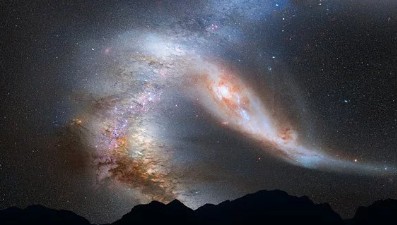
The temperature of space is essentially zero. To be precise the average temperature in space or the universe is about -270.42 degrees Celsius or -454.76 degrees Fahrenheit. In comparison, the absolute zero temperature is at −273.15°C or −459.67°F. That means the temperature on space is about 2.73 kelvin.
#11 Our Galaxy Might Not be The Same in Future
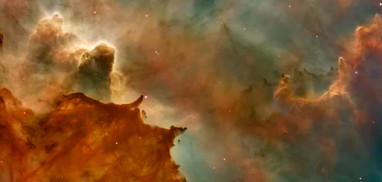
Like every other planet in the universe, our Earth also belongs to a galaxy. And we have named this galaxy ‘Milky Way’. But due to ‘Galactic Cannibalism’, our Galaxy might get affected in the future.
Reports claim that our galaxy ‘Milky Way’ might collide with our nearest galaxy ‘Andromeda’ in about 4.5 billion years. However, in that instance, our sun will still be active and outlive our Galaxy.
#12 The Moon is getting Farther from Us
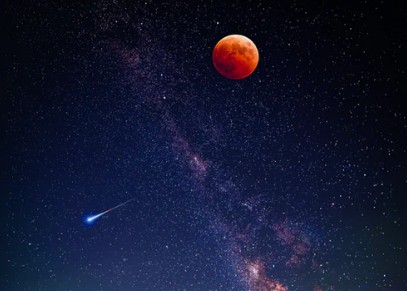
Earth has only one natural satellite that we call the ‘Moon’. However, due to Moon’s gravity on our planet, it is getting far from us.
In fact, the moon is getting about 4 cm or 1.6 inches away from Earth every year. However, at this rate, it would take billions of years for the Moon to leave the gravitational field of Earth.
#13 The Hottest Planet on our Solar System

We know that ‘Mercury’ is the closest planet to the Sun. For that, you might think that this is also the hottest planet on the solar system. However, that is not the case here. In fact, Venus is the hottest planet in our solar system.
The average temoere4taru on Venus is about 472 degrees Celsius or 880 degrees Fahrenheit. We have sent a few space crafts on Venus. However, because of enormous heat, they have not survived for long. Also, the atmosphere of the planet is also terrifying. It is covered with various active and dormant volcanoes.
#14 The Hottest Planet Outside of our Solar System
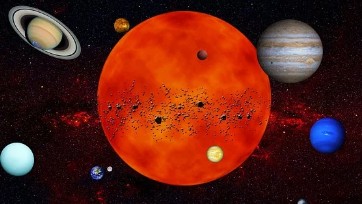
Venus might be the hottest planet in our solar system. But the planet named ‘KELT-9b’ is nothing like Venus. It is very close to its parent star that it can orbit the star within just 1.5 days. And, the surface temperature of this planet can reach up to 4600 Kelvins.
Compared to that, the surface temperature of our Sun is about 5800 Kelvin. In this regard, this planet is actually hotter than many stars in the universe. The host star of this planet is also very hot and bigger than our sun. The temperature of that star can reach up to 10,100 Kelvin.
#15 The Planets with the Worst Weather on our Solar System
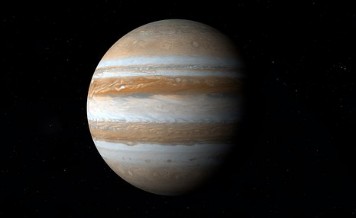
There are several planets on the solar system that are known for extreme weather. First off, Venus and we have already talked about it earlier. Next up, Jupiter is also known for having horrible weather. For instance, the ‘Great Red Spot’ is an anti-cyclonic storm that is going for about 350 years continuously.
On the other hand, ‘Neptune’ is known for its violent supersonic methane-based winds. At the same time, Neptune is also the windiest planet in the solar system. The wind speed on this gas giant can reach up to 1930 kilometers per hour to 1200 miles hour.
#16 The Coldest Planet Outside of Our Solar System
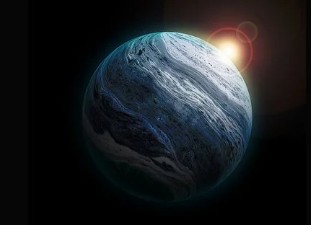
Neptune is also known as the coldest planet on our solar system. The average temperature on this frosty planet is about -214 degrees Celsius or -353 degrees Fahrenheit. But that is nothing compared to the coldest planet in the universe discovered as of yet. We are talking about the ‘OGLE-2005-BLG-390Lb’ planet.
This one has an average temperature of about -223 degrees Celsius or -369 degrees Fahrenheit. Interestingly, this is not that far away from its parent star. But its parent star is a red dwarf which is cool and low mass. So, it can’t transmit enough hit towards its planets.
#17 The Biggest Planet in the Universe
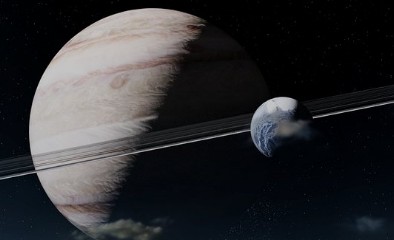
Jupiter is the biggest planet in our solar system. However, when it comes to the ultimate biggest planet in the universe, we have the ‘DENIS-P J082303.1-491201 b’ planet. In comparison to Jupiter, it has about 28.5 times that mass.
At the time, it is classified as a gas giant like Jupiter. However, there are debates going on whether to classify it as a planet or a brown dwarf star, because of its massive size. A planet that is equal to the size of many stars? Frightening, isn’t it?
#18 The Hottest and Most Luminous Supernova
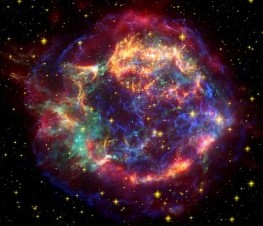
When a star dies, it explodes at the last moment of its lifetime. And, this particular explosion is known as ‘Supernova’. This type of supernova explosion is actually the biggest explosion that occurs in the entire universe.
A supernova can even outshine an entire galaxy. Before the explosion, a supernova can get about 100 billion kelvin hot. Till now, the ‘ASASSN-15lh’ has been recorded as the brightest supernova ever. It reached a peak luminosity of about 570 billion Solar Luminosity. That is twice the times brighter than any other supernovas discovered yet.
#19 The Black Holes
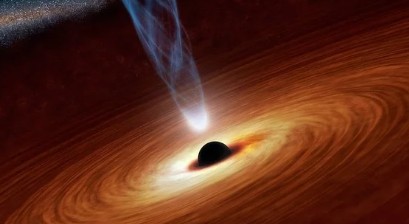
Black holes form if the center of a massive star collapses upon itself. During this time, a big explosion happens and we call it supernova. However, gradually, the dead star turns into a black hole. These are among some of the most powerful celestial bodies in the space. A black hole’s gravitational pull is strong that even light can’t escape from it.
#20 The Quasars
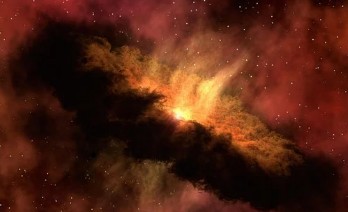
You might not be familiar with ‘Quasars’ yet. But, these celestial objects are found mostly at the center of various active galaxies. Why these are important? Because ‘Quasars’ are known to be one of the most powerful, energetic, and luminous objects in the universe. A ‘Quasar’ is so powerful that it can emit more than a thousand times of energy compared to a galaxy like our ‘Milky Way’.
Now, our galaxy contains about 200 to 400 billion stars. So a ‘Quasars’ can be thousand times powerful and luminous than all of those hundreds of billions of stars combined. But where do these ‘Quasars’ find their fuel? In fact, supermassive black holes, that have billions of times more mass than the sun, power these ‘Quasars’. The black holes are surrounded by the ‘Quasars’.
And, black holes are known for devouring anything on their way. So, when a black hole has enough particles around it, these particles start to explode all around the black hole. And because of these infinite powerful explosions, they shine brightly all the time. For the record, there’s nothing brighter than ‘Quasars’ in the entire universe.
#21 Every Celestial Body have Different Sounds
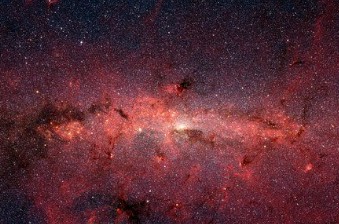
Space is mostly vacuum. That means there is no way for sound to travel. However, that doesn’t mean that anything in the space doesn’t have any sound.
In reality, almost all the celestial bodies in space produce various kinds of sounds. Interestingly, NASA has recorded the ‘Radio Emissions’ of the planets and stars and converted them to sound waves. So that we can listen to the outer space from a new angle.
#22 White Holes
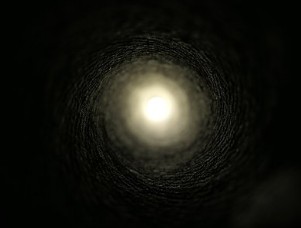
Theoretically, it is possible for white holes to exist in space. And, you have guessed it right that they are opposite of the black holes. In this case, nothing can enter into a ‘White hole’ from the outside.
And, everything, even light, can escape from this. There are theories that every galaxy has a supermassive black hole at its center. And, every supermassive black hole spawns a white hole.
#23 If You Fall in a Black Hole
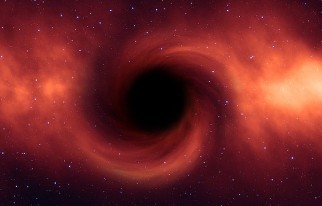
Black holes are mysterious. There’s no way you can enter into a black hole. Still, for the sake of argument, let’s say, you have entered into one. So, what will be the consequences? Unfortunately, there is no accurate answer to this question. However, there are several theories on this.
For instance, entering a black hole might split your reality into 2 parts. At one part, you will be burned down instantly. In another reality, you will be unharmed. How? We know for sure that time doesn’t work the same near the black holes as it does on Earth.
From a distant observer, if you were falling on a black hole, it would look like that you have stopped before entering the black hole and suddenly disintegrated. It is because the time stands still near a black hole. However, to you, you might see that you are falling in the black hole without any issues. Nevertheless, one thing we are sure that you cannot escape from a black hole.
#24 We Know Very Little of the Universe
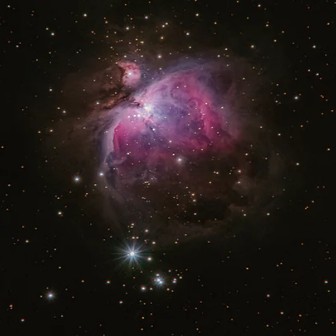
According to astronomers, all the galaxies, stars, planets, etc. we have discovered as of yet just comprise about 4% of the entire universe. The rest of the 96% is made of unknown stuff. We haven’t yet detected, seen, or even grasped the idea of the unknown universe. As a result, astronomers call them ‘Dark Energy’ and ‘Dark Matter’.
Still, we know a lot. In fact, the observable universe is known to contain around 2 trillion galaxies and 1 billion trillions of stars. By contrast, there are more stars in the observable universe than there are grains of sand on our planet. Let that sink in for a moment!
#25 The Opposite of Big Bang
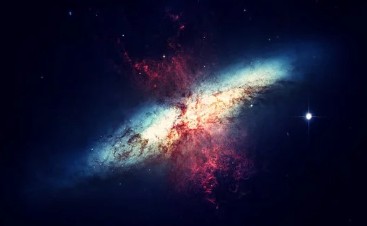
According to many scientific theories, the universe started with the ‘Big Bang’. And, they also suggest that our universe might end with a ‘Big Crunch’ or a ‘Big Rip’. These are mostly reverse of the ‘Big Bang’. The ‘Big Crunch’ theory suggests that the universe will start to shrink and will re-collapse to its earliest state.
And, the ‘Big Rip’ theory implies that the universe might not stop expanding. And at one point, everything in the universe from galaxies, stars, planets, and even subatomic particles will be torn apart. Whatever happens, scientists suggest that our universe is still very young. This universe might be as it is for about 100 trillion years more.
Summing Up Scary Facts about Space
There you have it! These are some of the unbelievable yet amazing facts about the space. With the improvement of science and technology, we are getting to know a lot of new information about space on a daily basis.
However, there are many things that are yet to be known. While, we might know a lot of things, but some of those we don’t even understand.
And, there could be a lot of things in space that we might always be confused about without any accurate answers. Nevertheless, we have tried to provide you with some of the terrifying things about space that are interesting at the same time. We hope you have liked this. Speaking of space, you might also find our post on facts about NASA interesting.
Do you know any other facts about space that we haven’t included here? You can share them with us in the comments below!
